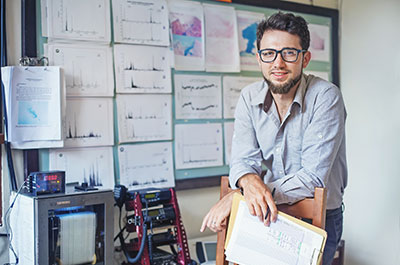High School Diploma in Physical Sciences
Career summary: Physicists and Astronomers
Average Salary$122,220 National Average, Source: Bureau of Labor Statistics |
Career OutlookGood 9% job growth by 2028, which is faster than average |
Earn a degree in physical sciences from an accredited college
One of the best ways to prepare for a career in physical sciences is through a college education. A High School Diploma will help you develop entry level skills, general physical sciences know how and the basic physical sciences experience you need to start your career off right. You may also consider a Diploma in Physical Sciences to help you take your education and career to the next level. Please select physical sciences school below.
Overview

Why would I want a physics degree?
A degree in physics will help you develop the knowledge and skills you need to have an exciting career in a field with great job opportunities and average salaries in the six figures. If you are mathematically inclined, if you enjoy learning about the universe, and you are prepared to earn an advanced degree, then a degree in physics may be just the degree you are looking for.
Job Description
What do people with physics degrees do?
People who get their degrees in physics generally go on to become physicists. In short, physicists study the fundamental properties of the natural world (matter, motion, energy, and force) and apply the knowledge they’ve learned to design new technologies. As part of their jobs, they design and perform experiments using high-tech equipment such as lasers, particle accelerators, electron microscopes, and mass spectrometers. Through these experiments they attempt to discover and explain laws describing the forces of nature, such as gravity, electromagnetism, and nuclear interactions.
Physicists are generally categorized as either theoretical physicists or applied physicists. Theoretical physicists do research to answer questions such as, “What causes gravity?” They design experiments around these questions and use observation and mathematics to try to answer these questions. Applied physicists apply their knowledge to more practical areas, developing things such as advanced materials, electronic and optical devices, and medical equipment.
Many physicists specialize in a particular area of physics. The most common specialties are listed below.
- Acoustics: Physicists in this area deal with the study of all mechanical waves in gases, liquids, and solids including vibration, sound, ultrasound and infrasound.
- Atomic and Molecular Physics: Deals with the study of matter interactions on the scale of single atoms or structures containing a few atoms.
- Condensed Matter Physics: Deals with the physical properties of condensed phases of matter, namely solids and liquids.
- Nuclear Physics: Deals with studying the building blocks and interactions of atomic nuclei. The most well-known application of this area of physics is found in nuclear energy and nuclear weapons.
- Particle Physics: Deals with the study of the interactions of particles that cause radiation.
- Space Physics: Is the study of plasmas as they occur naturally in the universe. This includes things such as the sun, solar wind, planetary magnetospheres and ionospheres, etc.
The industries that employ the highest amount of physicists are listed below.
- Scientific Research and Development Services
- Federal Government
- Colleges, Universities, and Professional Schools
- Management, Scientific, and Technical Consulting Services
- General Medical and Surgical Hospitals
Salary
How much do physicists make?
According to the Bureau of Labor Statistics, the median annual salary for physicists in May 2019 was $122,850. The middle 50 percent earned between $88,670 and $164,210. The lowest 10 percent earned less than $62,470, and the highest 10 percent earned more than $201,990. The mean hourly wage for physicists in 2019 was $63.02.
The states with the highest average annual salaries for physicists were Kansas, Oklahoma, New Mexico, Connecticut, and Louisiana. They paid out a combined average annual salary of $169,010.
Career Outlook
How popular are physicist jobs?
Jobs in physics are quite popular, and they will continue to be popular into the foreseeable future. Jobs in this industry are expected to grow by 9 percent through the year 2028, which is faster than the average growth rate among all jobs.
Career Path
How do I become a physicist?
The majority of physics jobs are in research and development. A doctorate degree in physics is needed for most of the jobs in research and development; although, there are some jobs available for those who hold master’s degrees in physics. A bachelor’s degree in physics would qualify one for research assistant jobs in areas such as engineering and technology.
Salary and career outlook data provided by the U.S. Bureau of Labor Statistics.
Physical Sciences Schools (0)
...Please wait... more schools are loading...
